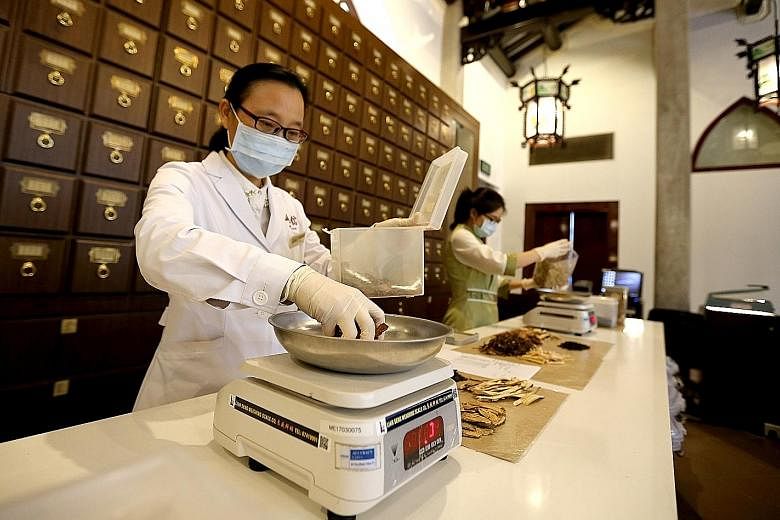Traditional Chinese medicine (TCM) practitioners may not have their practising certificates renewed if they do not meet the new compulsory continuing professional education (CPE) requirements passed in Parliament yesterday.
The change to the Traditional Chinese Medicine Practitioners Act brings TCM practitioners in line with other healthcare professionals like doctors, nurses and pharmacists, who must continually upgrade.
Since 2013, TCM practitioners have been encouraged to participate in a voluntary CPE programme and accumulate at least 25 points a year through approved conferences, seminars, workshops and training courses. Points can also be earned by publishing research papers in recognised journals or books on TCM.
The new Bill will require practitioners to accumulate at least 50 points within a two-year period to renew their certifications.
This will allow them some flexibility to plan their learning without unduly affecting their professional practice, said Senior Minister of State for Health Amy Khor.
The TCM Practitioners Board's disciplinary and investigative powers for dealing with complaints against practitioners have also been strengthened under the Bill.
The existing disciplinary framework does not adequately deal with allegations that a registered TCM practitioner is unfit to practise because of a physical or mental condition, said Dr Khor.
Under the Bill, the board may issue an interim order requiring a practitioner to stop practising for up to 18 months without prior investigations, provided it has reasonable grounds to believe that not issuing such an order would pose a serious risk to the public. In such a situation, the board will also have the power to cancel the practitioner's registration immediately.
The maximum fine that can be imposed on TCM practitioners found guilty of professional misconduct or negligence has also been sharply raised from $10,000 to $50,000.
This is on a par with the $50,000 maximum fine that can be imposed on dental, pharmaceutical and allied health professionals.
Dr Khor said the board receives, on average, fewer than 10 complaints about TCM practitioners each year, with about half requiring disciplinary action.
Investigators appointed by the board to investigate offences under the Traditional Chinese Medicine Practitioners Act will now also be able to enter and search a place used or suspected to be used for TCM practice without a court warrant.
They will also be able to seize evidence such as documents, records and other items for the purpose of investigation.
Rei Kurohi


